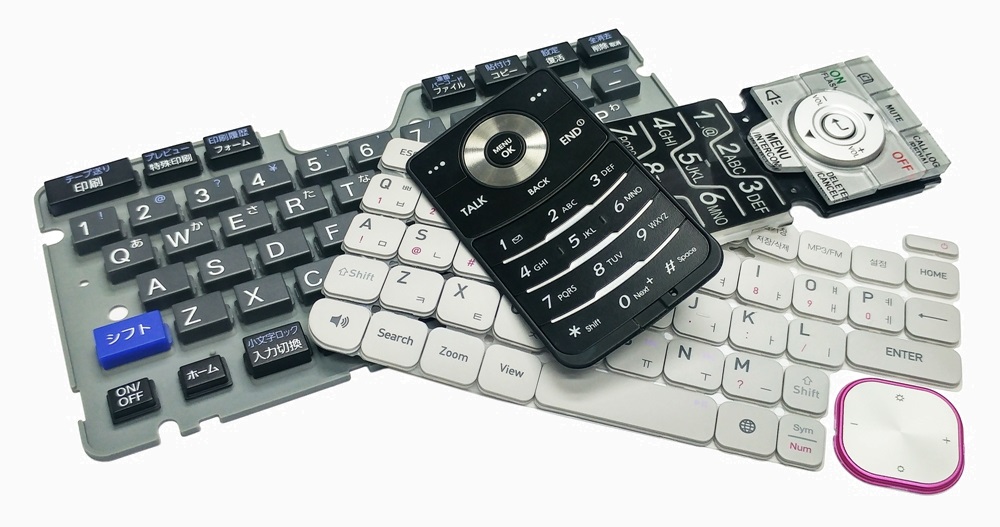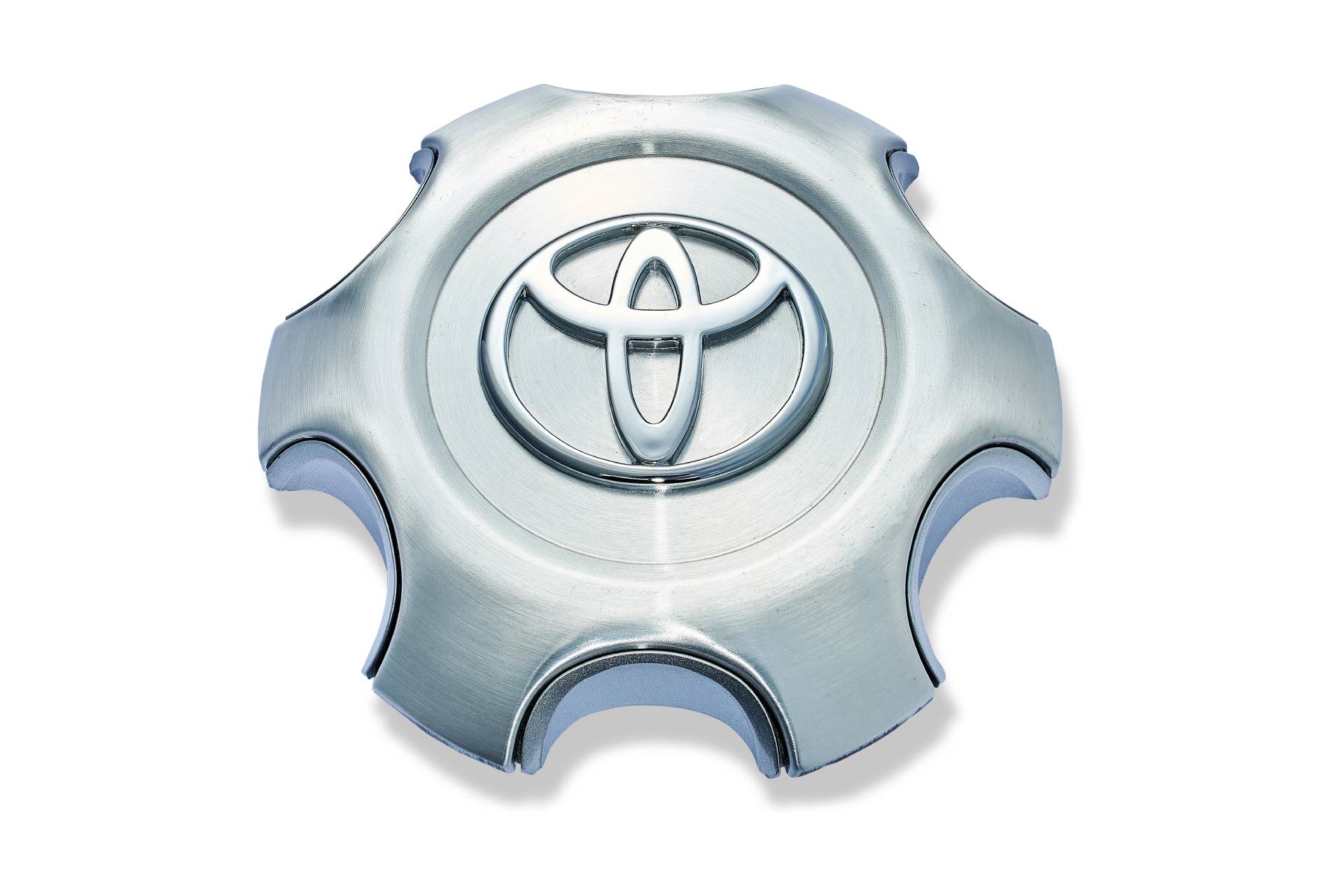Everything OEMs should know about designing Rubber Keypads
Discovering the Diverse Keys In and utilizes of Rubber Keypads in the Technology Landscape Today
Rubber keypads have established themselves as necessary components in various technological applications. Their versatility makes them suitable for customer electronic devices, industrial machines, and clinical gadgets. As these keypads remain to evolve, new personalization alternatives and style trends emerge. This prompts a more detailed assessment of their advantages and making processes. Understanding these components may reveal why rubber keypads continue to be a favored selection in the innovation landscape. What lies in advance for this functional component?
Introduction of Rubber Keypads
Rubber keypads work as an essential component in different electronic devices, offering a tactile interface for user interaction. These keypads are commonly made from silicone or rubber materials, which supply versatility and durability. Their layout frequently incorporates increased letters or symbols, boosting functionality by permitting users to really feel the secrets - Rubber Keypads. Rubber keypads are resistant to dirt, dampness, and use, making them suitable for requiring environments
In addition, they can be personalized relating to color, size, and shape, permitting producers to produce special interfaces tailored to specific products. The manufacturing process typically involves techniques such as molding and printing, ensuring premium result. Therefore, rubber keypads not only enhance capability yet also contribute to the total appearances of the device. With these attributes, rubber keypads remain a prominent option for both suppliers and customers, emphasizing their relevance in the innovation landscape.
Common Applications in Customer Electronic Devices
While many digital tools rely upon touchscreens for individual communication, rubber keypads remain to play an essential function in customer electronics. These keypads are widely utilized in tools such as remotes, pc gaming controllers, and household appliances, where responsive comments enhances customer experience. Their sturdiness and resistance to put on make them ideal for devices regularly subjected to heavy use.
Rubber keypads are additionally popular in portable gizmos and mobile phones, where small designs demand reputable and responsive input methods. The ability to personalize the shape and appearance of rubber keypads enables makers to develop unique designs that interest consumers. In addition, the soft touch of rubber provides convenience throughout long term usage, making these keypads a recommended option for gadgets needing extensive interaction. In general, rubber keypads continue to be a vital part in the consumer electronics landscape, integrating performance with user-friendly features.
Duty in Industrial and Medical Tools
Rubber keypads play an important duty in both medical and commercial equipment, using longevity and dependability popular atmospheres. In commercial setups, they are often made use of in control panels and machinery, enhancing operator interaction with complicated systems. In a similar way, in the clinical area, rubber keypads facilitate easy to use interfaces for devices that need precision and hygiene.
Industrial Equipment Applications
Keypads play a vital role in the capability and user experience of medical and industrial tools. In industrial setups, rubber keypads supply a robust user interface for machinery and control systems, enabling operators to easily input commands and change setups. Their resistance to dust, dampness, and chemicals guarantees dependability under extreme problems normal of factories and producing plants. Additionally, the tactile responses used by rubber keypads enhances customer interaction, decreasing the likelihood of input mistakes. In addition to typical machinery, these keypads are important in automated robotics and systems, where precision is paramount. The convenience of rubber keypads in different commercial applications emphasizes their value in boosting operational performance and guaranteeing safety and security in complicated environments.
Medical Gadget Integration
As clinical devices significantly call for straightforward interfaces, the combination of rubber keypads has become vital in ensuring efficient interaction between medical care professionals and devices. These keypads supply tactile responses, assisting in instinctive operation even in high-pressure environments. Their toughness and resistance to extreme cleaner make them perfect for medical setups, where hygiene and long life are essential. Furthermore, rubber keypads can be tailored to include various shapes, sizes, and shades, enhancing visual acknowledgment and accessibility for customers. This adaptability enables the creation of specialized controls customized to particular clinical functions, enhancing overall effectiveness. The role of rubber keypads in clinical tool assimilation not only improves performance however additionally advertises patient security and operational dependability in healthcare atmospheres.
Personalization Options and Layout Trends
Recent design fads highlight minimalism and comfort designs, focusing on user comfort and user-friendly communication. Personalized logos and branding can be incorporated into keypads, enabling companies to site preserve a cohesive brand identification across their products. Additionally, advancements in manufacturing methods, such as silicone molding, have made it simpler to achieve complex styles and individualized designs.
Benefits of Rubber Keypads Over Various Other Types

Rubber keypads are likewise understood for their sturdiness and resistance to ecological aspects. They can hold up against temperature, moisture, and dust changes, making them optimal for outdoor or commercial setups. In addition, rubber keypads are frequently quieter than their plastic or steel equivalents, minimizing sound pollution in common environments.
Moreover, the cost-effectiveness of rubber keypads makes them an eye-catching alternative for manufacturers. Their light-weight nature adds to reduce shipping expenses, while their personalized layouts deal with specific branding needs. On the whole, rubber keypads stand for a versatile and reliable service in the innovation landscape.
Manufacturing Techniques for Quality and Durability
In the production of rubber keypads, the choice of proper materials and molding procedures plays an essential function view website in establishing general top quality and sturdiness. Various molding strategies, such as compression and shot molding, significantly affect the last item's performance. Recognizing these elements is crucial for attaining optimal results in rubber keypad manufacturing.
Molding Procedures Described
A selection of molding procedures play a necessary duty in the production of rubber keypads, my website guaranteeing both top quality and longevity. The most common methods include compression molding, transfer molding, and shot molding. Compression molding includes positioning rubber in a warmed mold, where heat and pressure shape it into the preferred type. Transfer molding enables even more precise control over material flow and appropriates for complicated layouts (Rubber Keypads). Injection molding, understood for its rate and effectiveness, injects molten rubber right into a mold under high pressure, producing high-volume parts with regular high quality. Each method supplies distinct benefits, affecting variables such as production cost, layout, and rate flexibility, ultimately affecting the performance and life expectancy of rubber keypads in different applications
Material Selection Value
Material selection plays a crucial function in the manufacturing of rubber keypads, directly affecting their efficiency and durability. The choice of rubber substances, such as silicone or polyurethane, effects tactile responses, resistance to put on, and ecological toughness. Premium products assure that keypads can hold up against considerable usage, keeping their performance over time. Furthermore, the formula of rubber influences its resistance to temperature level variations and direct exposure to chemicals, which are crucial for gadgets in numerous environments. Using advanced manufacturing methods, such as compression or injection molding, more boosts the architectural honesty of keypads. Inevitably, mindful product selection and production processes contribute considerably to the general quality, long life, and user satisfaction of rubber keypads in today's technology landscape.
Future Patterns in Rubber Keypad Modern Technology
As modern technology remains to evolve, the future of rubber keypad advancement appears appealing, with improvements poised to enhance capability and individual experience. One notable trend is the integration of touch-sensitive innovation, enabling capacitive responses that resembles the feeling of traditional buttons while providing improved responsiveness. Furthermore, the development of antimicrobial materials is most likely to get grip, resolving health issues in public and shared tools.
Personalization choices are anticipated to increase, permitting users to customize essential designs and responsive comments, consequently catering to diverse demands. The unification of clever innovation, such as connection features, might likewise emerge, enabling rubber keypads to engage with other tools seamlessly. As manufacturers concentrate on sustainability, environmentally friendly materials are prepared for to become extra widespread, straightening with global environmental goals. On the whole, these patterns guarantee to reinvent rubber keypads, making them much more functional, user-friendly, and environmentally aware in the innovation landscape.
Often Asked Questions
Exactly How Do Rubber Keypads Compare in Price to Other Keypad Types?
Rubber keypads usually provide an affordable service compared to various other keypad types, such as membrane or mechanical alternatives. Their lower production costs and sturdiness make them an appealing selection for numerous applications in technology.
What Are the Ecological Influences of Rubber Keypad Manufacturing?

The environmental impacts of rubber keypad manufacturing include source exhaustion, power intake, and pollution from manufacturing procedures. In addition, incorrect disposal can cause plastic waste, contributing to environmental degradation and hurting environments otherwise handled responsibly.
Can Rubber Keypads Be Made Use Of Outdoors?
Rubber keypads can be made use of outdoors due to their resilience and resistance to weather aspects. Nevertheless, their long life might depend on the high quality of materials utilized and the certain environmental conditions they are revealed to.
What Upkeep Is Needed for Rubber Keypads?
Rubber keypads require regular cleansing to eliminate dirt and particles, periodic evaluation for deterioration, and protection from severe temperature levels. Guaranteeing appropriate storage conditions can prolong their life expectancy and keep capability over time.
Just How Do Rubber Keypads Perform in Extreme Temperatures?
Rubber keypads commonly maintain performance in extreme temperatures, showing durability to both warmth and cold. Prolonged exposure may cause material deterioration, impacting their responsive reaction and overall performance in extreme atmospheres.
Rubber keypads serve as a basic element in various digital gadgets, offering a responsive user interface for user interaction. While numerous electronic tools count on touchscreens for user interaction, rubber keypads continue to play a vital role in customer electronics. In addition, the soft touch of rubber offers convenience throughout prolonged use, making these keypads a recommended selection for tools requiring extended communication. Regardless of the growing range of keypad materials available, rubber keypads offer distinctive benefits that make them a recommended selection in several applications. Rubber keypads generally supply an affordable option compared to various other keypad types, such as membrane or mechanical options.